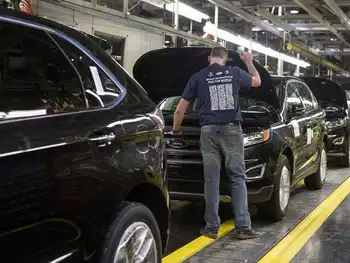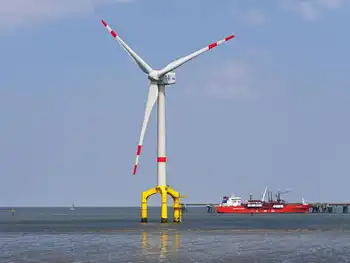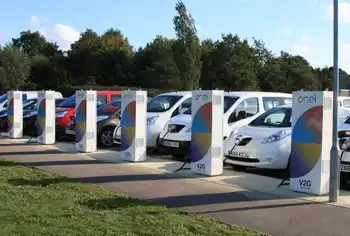Renewed TVA projects good for Areva, B&W
By Poten & Partners
Protective Relay Training - Basic
Our customized live online or in‑person group training can be delivered to your staff at your location.

- Live Online
- 12 hours Instructor-led
- Group Training Available
However, the rebirth of nuclear reactor projects the Tennessee Valley Authority started decades ago could send work to Lynchburg companies.
TVA is finishing the second nuclear reactor at its Watts Bar plant in Tennessee. It is looking to do the same thing at a nuclear plant in Alabama. Both Areva and Babcock & Wilcox have announced contracts for the Alabama project.
"While other companies are moving dirt and thinking and talking and planning, we're actually constructing," said TVA spokesman Terry Johnson. "We actually have 3,300 people out at Watts Bar actually working.... TVA has its own little mini-renaissance going on."
Mitch Singer, a spokesman for the trade group Nuclear Energy Institute, said the development of new nuclear plants is far from stalled, pointing out that two utilities have started groundwork for reactors in Georgia and South Carolina. They could receive regulatory approval as early as next year.
Some projects have slowed, Singer said.
Three years ago, about 15 companies began seeking regulatory approval to break ground on 28 nuclear reactors. Many of those utilities have cooled on the new construction prospects as the demand for electricity declined in the recession.
Other factors are in play as well, including low natural gas prices, the lack of U.S. regulation on carbon emissions and the drawn-out process of getting federal loan guarantees.
The Areva U.S. Evolutionary Power Reactor proposed in Maryland — a key reason why Areva set out in 2008 to bring 500 new employees to Lynchburg — is one of the projects affected. This month, Constellation Energy pulled out of the project, but its partner Electricite de France may move forward on the reactor alone.
TVA was one of the companies that sought approval to build new reactors, part of a plan to replace its coal power plants, Johnson said. Then the company decided it would be more economical to finish its partially completed reactors.
The reactors were started in the 1970s when the demand for electricity was skyrocketing. Construction stopped when the growth in demand slowed down, Johnson said.
For example, TVA estimates it would cost $2.5 billion to finish the Bellefonte Unit One reactor in Alabama, compared to as much as $10 billion to build a new plant from the ground up. The TVA board of directors authorized $248 million for work on that project in August.
The board probably will decide next year whether to resume construction, Johnson said.
Areva and B&W already have won contracts for the Bellefonte reactor.
Areva got a contract for engineering and development work on the site. Areva employees in Lynchburg and Charlotte, N.C., will perform the work, an Areva spokeswoman said.
B&W's Canada subsidiary received a contract to build two steam generators for the Bellefonte plant. The generators would be delivered in 2015, and the plant would start operating in 2018 or 2019.
B&W spokesman Jud Simmons said in an e-mail Friday that B&W makes nuclear components for government projects at its Lynchburg-area facility, and commercial projects are constructed at other sites.
TVA was one of the first potential customers for B&W's mPower reactor, which is being designed in the Lynchburg area. Johnson said TVA is considering using the modular reactor at a site near Oak Ridge, Tenn.
TVA is a member of B&W's consortium promoting the development of mPower. "Input from TVA and other utilities, now and in the future, is very valuable in assuring that things like the reactor's design and operating features meet the needs of potential customers," Simmons said.











